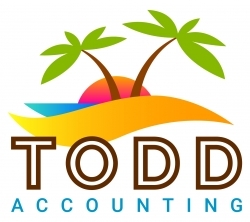Info Type
View Option
Sort by Category
Show all from recent
| 1. | Dual Nationals Traveling to the U.S. ・ Departure a...(604view/4res) | Problem / Need advice | 2025/01/16 02:53 |
|---|---|---|---|
| 2. | about state farm insurance companies(202view/2res) | Question | 2025/01/15 08:18 |
| 3. | My Smart Android TV Box is broken ! Please let me ...(64view/0res) | Problem / Need advice | 2025/01/14 23:18 |
| 4. | Offices for rent in Waikiki(494view/7res) | Question | 2025/01/12 21:36 |
| 5. | Japan and Hawaii Comparison(3kview/6res) | Daily life | 2025/01/06 12:58 |
| 6. | handyman(809view/2res) | Question | 2025/01/03 17:07 |
| 7. | Experience in restaurant management in Hawaii.(871view/4res) | Problem / Need advice | 2025/01/02 15:07 |
| 8. | Dual nationality passport expired(856view/4res) | Question | 2024/12/15 12:30 |
| 9. | I received an email from Bank of Mitsubishi UFJ re...(801view/5res) | Problem / Need advice | 2024/12/13 21:29 |
| 10. | Remittance from Japan to Hawaii(1kview/3res) | Question | 2024/12/09 08:59 |
About U.S. Pensions
- #1
-
- アロハ生活
- 2023/06/06 13:40
If anyone can help me out, please let me know.
I was a housewife in Japan. I came to Hawaii with my husband and have been working for the past 3 years
and have been earning income through payroll.
I have a question on this condition.
I heard that you have to work more than 10 years to get pension in the U.S.I also heard that the period of time you worked in Japan can be added to this 10 years
I wonder if that is true ?
I would appreciate if you could also tell me how to check my current status, etc.I would appreciate it if you could also tell me how to check my current condition. This text has been translated by auto-translation. There may be a slight difference between the original text and the translation. (Original Language: 日本語)
- #2
-
Under the U.S.-Japan Social Security Agreement, those who have worked in the U.S. for more than 1 . 5 years may total their U.S.-Japan enrollment periods. ( See below )
http://usa.yoshimura-sr.com/index.php?%E5%8F%97%E7%B5%A6%E6%89%8B%E7%B6%9A%E3%81%A8%E3%81%AF#n9fbbde0
It will depend on whether you and your husband will be working in Japan or the U.S., and whether you will retire in Japan or the U.S., and whether you will receive a pension from the U.S. or Japan. In my case, I worked in Japan for more than 10 years and paid voluntary National Pension Insurance contributions until the pensionable age. I also worked in the U.S. for more than 10 years to qualify for the pension, so I applied for both the Japanese and U.S. pensions separately and received both the Japanese and U.S. pensions without totaling them. The specific amount of the pension will be calculated according to each individual's circumstances, so I suggest that you consult with the pension office in Japan or the U.S., depending on which has more weight in your Japanese or U.S. pension. The relevant Japanese pension office is below. Also, I would like to mention a reference site.
https://www.nenkin.go.jp/service/shaho-kyotei/kunibetsu/20120802-01.html
https://www.cdhcpa.com/ja/%E6%97%A5%E7%B1%B3%E 5%B9%B4%E9%87%91%E5%88%B6%E5%BA%A6%E3%81%A7%E7%B5%B6%E5%AF%BE%E3%81%AB%E7%9F%A5%E3%81%A3%E3%81%A6%E3%82%82%E3%82%89%E3%81%84%E3%81 %9F%E3%81%84%E3%81%93%E3%81%A8/This text has been translated by auto-translation. There may be a slight difference between the original text and the translation. (Original Language: 日本語)
- #3
-
We understand that the intent of your question is to confirm whether you can receive a
pension in the US or Japan if you have been making pension payments for a total of 10 years in Japan and the US.
Please see the following excerpt for the answer.
"The "U.S.-Japan Social Security Agreement" was signed in 2005. The U.S.-Japan Social Security Agreement is that if the minimum enrollment period for pension benefits in one country is not met,
the enrollment period in the pension system of the other country can be counted.
For example, before the agreement was signed, if you had seven years of participation in the U.S. pension system and three years in the Japanese pension system, you could not receive a pension from either country
because you did not meet the eligibility requirements in each country. However,
after the agreement was signed, they could receive the U.S. pension for 10 years by adding three years of Japanese pension to the U.S. pension."
As you can see from this explanation, if the total number of years in the U.S. and Japan exceeds 10 years, you can receive
pensions in both countries.
However, the procedure to receive this in both Japan and the U.S. is very time-consuming to process, unlike the understanding of this treaty.
Processing the pension in Japan also involves quite a bit of paperwork and other documents when applying, and anyway, the Pension Service requires many
application forms, and the process is so tedious that a proxy, such as a relative in Japan, is needed.
Furthermore, applying for Social Security benefits in the U.S. is also not that much
hassle if you have 10 years of credit, and can be processed by applying on the web or by bringing the application form and proof of identity
to the Social Security office However, if you do not have
10 years of credit and you are combining your pension with a pension from outside the U.S.,
how you prove it
depends greatly on the person in charge of the Social Security office.
Simply put, it is beyond imagination how to prove and convince the person in charge that your record is the same as someone who worked in Japan for 7 years and paid into the pension system and who has only
paid into US Social Security for 3 years.
In addition, there are rules that reduce the amount of the pension in the US if you receive a pension in Japan or the US,
and even with that much hassle, the amount you pay for 3 years of Social Security in the US
will probably be disappointingly I think you can assume that it will be a very small amount.
Therefore, while it is possible to receive Social Security benefits under the regulations, the individual process can be quite
time-consuming and, simply put, not worth it.
Please note that your questions on thebulletin board are for reference only, and if you actually take action, please take
advice from experts and others so as not to waste time and effort.
Speaking from experience, it takes time anyway, and even if you are eligible to receive benefits in Japan and the U.S.,
you will be required to send a "status report" every year, which is a notarial certificate to prove that you are alive,
and also once every three years, an IRS tax certificate, Form 6166
such as sending Form 6166, which is an annual process.
And last but not least,
the amount of money you will receive will not be enough to support your lifestyle. Please understand.This text has been translated by auto-translation. There may be a slight difference between the original text and the translation. (Original Language: 日本語)
- #4
-
- アロハ生活
- 2023/06/07 (Wed) 07:58
- Report
Thank you SJDummy for your reply.
I will take the time to look at the two sites and try to understand them.
The pension system is a bit complicated and I have not looked at it properly, so I will have to study it carefully.
Thank you tax man
You have always given me detailed advice on my tax questions here at Vivinavi.
I understood very well again.
Thank you very much.
While I can still work, I will try my best to work hard here, pay my taxes, and get my US pension alone
.This text has been translated by auto-translation. There may be a slight difference between the original text and the translation. (Original Language: 日本語)
Posting period for “ About U.S. Pensions ” has been closed.
Please create new topic to continue the same topic.
- Find local business with Town Guide
-
- Kualoa ・ Ranch is a wilderness activity ...

-
Kualoa ・ Ranch is an activity ・ center surrounded by nature, located in the northeast of Hawaii ・ Oahu. About 10 different activities and marine sports are available as optional tours, including horse...
+1 (808) 237-7321Kualoa Ranch Hawaii
-
- Za Umebayashi is a tonkatsu specialty re...

-
As a first step to promote tonkatsu, one of Japan's traditional dishes, to the world, we opened our first U.S. restaurant in Hawaii ・ Waikiki. You can now enjoy the authentic taste of Japanese tonkats...
+1 (808) 200-1109TONKATSU GINZA BAIRIN
-
- Buy Hawaii Real Estate ・ Sell ・ Long Ter...

-
Starts Hawaii is the local subsidiary of Starts, the well-known "Pitatto House in Japan. We offer a wide range of services to assist our clients, including sales, rentals, property management,...
+1 (808) 947-2280STARTS INTERNATIONAL HAWAII, INC.
-
- We are here to help our patients build t...

-
We are here to help our patients build the family they desire. We have full-time Japanese-speaking staff, so please do not worry about it alone.
+1 (808) 545-2800Fertility Institute of Hawaii
-
- At Poepoehoe Hawaii, our instructors wil...

-
Poepoe Hawaiian Cultural Center offers a wide range of courses from authentic ukulele and hula to Hawaiian language courses directly from our wonderful instructors in the home of Hawaii to bring the w...
+1 (808) 312-4381Poepoe Hawaiian Culture Center
-
- We have been in business for more than 1...

-
Restaurant Inaba has been serving authentic Japanese food in Hawaii for 15 years. If you miss the taste of Japan in Hawaii, such as Soba, Tempura, Udon, Sushi, etc., please come to our restaurant. We ...
+1 (808) 953-2070Restaurant i-naba
-
- Japanese Cleaning Company, Hawaii ・ Grow...

-
・ Careful cleaning: We pay close attention to detail and leave your home or office sparkling clean. ・ Tailored service: From regular cleaning to thorough cleaning, we offer services to meet your need...
+1 (646) 846-8068Lauri's Cleaning LLC
-
- Meaty Boy is a steak grill restaurant an...

-
Meaty Boy is a steak grill restaurant and an offshoot of Niku Taro, a restaurant in the Ala Moana Shopping Center. The menu includes a selection of steak ribs, slow-roasted frijoles, and snacks made w...
+1 (808) 376-0435Meataly Boys
-
- We provide Medicare planning services in...

-
We can help you with your Medicare application and Medicare coverage for seniors in Hawaii. We can help you with any problems you may have with Medicare insurance in the U.S., such as difficulties wi...
+1 (808) 265-9097保険ヘルスケアエージェント (メディケアプランニング)中島久夫 | IOH (Insurance Options Hawaii)
-
- There are only two types of ramen in Haw...

-
Established in 2010 ・ Tokyo Shinbashi main store "Ramen Bari-On", a ramen store with 6 stores in Tokyo, is now open in Hawaii ! Our skilled ramen chefs dispatched from the main store in Tokyo make o...
+1 (808) 942-2025Ramen BARIO - Hawaii
-
- Residential and commercial properties, e...

-
A real estate company you can trust. We will work with you and your dreams for Hawaii real estate. We provide detailed explanations of all the procedures involved in buying and selling real estate in...
+1 (808) 957-0080Plus Seven Realty
-
- We are the first store in Japan speciali...

-
We are the first store in Japan specializing in fresh cream. With the support of Takanashi Dairy Industry, we are proud of our amazingly rich fresh cream. We offer milky soft ice cream and other sweet...
+1 (808) 376-0435MILK
-
- Dean & DeLuca Hawaii is a food boutique ...

-
DEAN&DELUCA is your source for gourmet foods from all over the world. We offer a variety of products that utilize the freshest local ingredients to help customers rediscover the deliciousness of Hawai...
+1 (808) 729-9720DEAN & DELUCA HAWAII
-
- ■ Furniture made in Japan ・ Specializing...

-
Sannaka-WEST" offers a large selection of Japanese furniture of all genres. We have a lot of experience and know-how in the field of Japanese furniture, and we are developing a meticulous follow-up an...
+1 (808) 537-6181Sannaka-WEST LLC
-
- We are an accounting firm in the United ...

-
Tax support between Japan and the U.S. ! Speedy procedures and aftercare ! Japanese ・ English either way.
+1 (877) 827-1040Todd's Accounting Services / Mayumi Ozaki (尾崎会計事務所)

